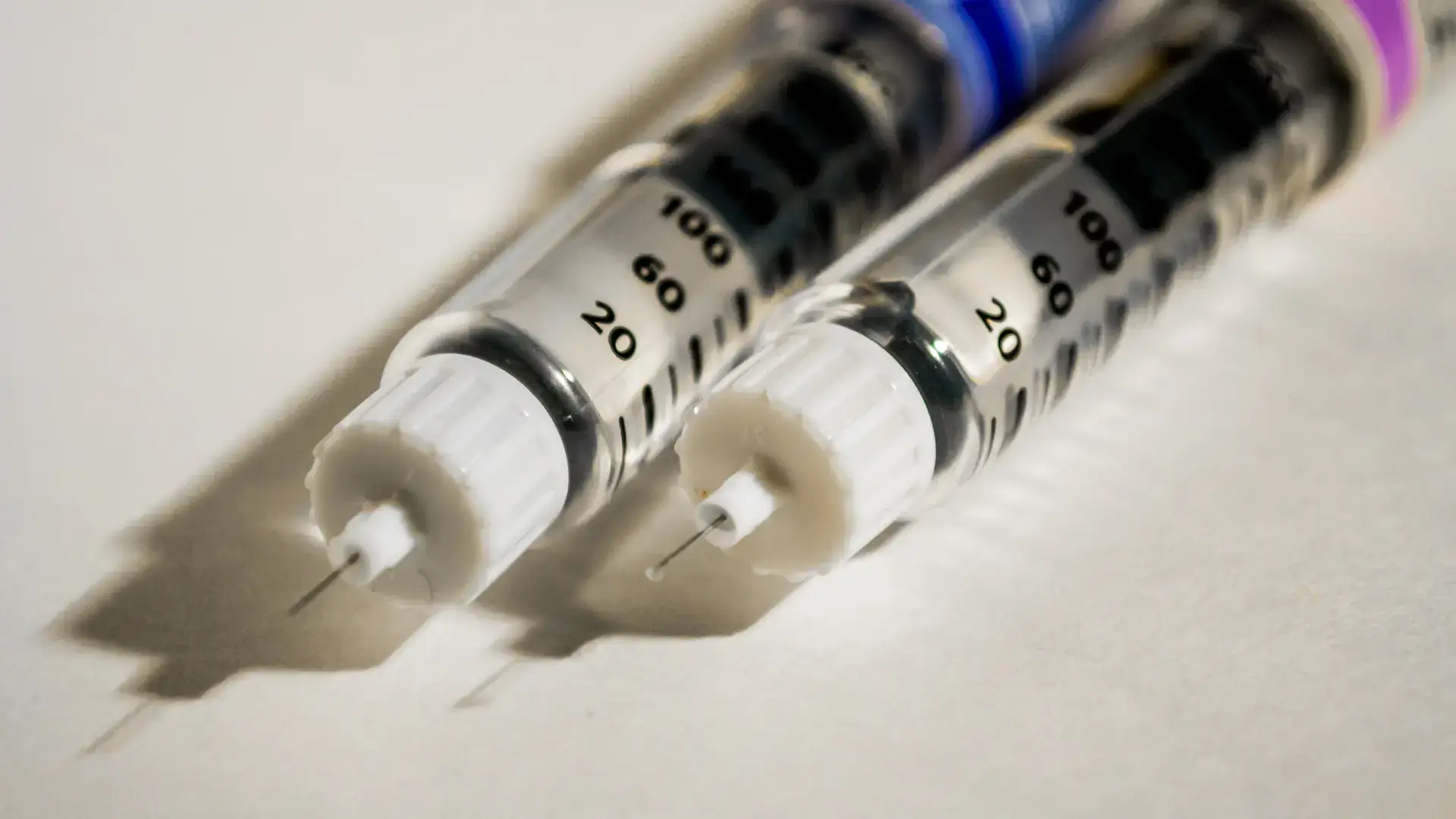Consuming alcohol significantly impacts abdominal obesity, a condition linked to numerous health risks, regardless of overall body weight. This underscores the importance of promoting healthy drinking habits to minimize these obesity-related dangers.
For individuals managing diabetes or obesity, excessive alcohol intake can worsen blood sugar control and weight management, raising concerns about the safety of drinking while on medications like Semaglutide. Although Semaglutide is clinically proven to be safe and effective, patients must consult healthcare professionals to navigate the complexities of alcohol use alongside their treatment.
This article will delve into the interactions between Semaglutide and alcohol, examine how alcohol affects the medication’s safety and efficacy, and discuss potential side effects.
Key Takeaways
- The Food and Drug Administration (FDA) has approved Semaglutide and most GLP-1 receptor agonist medications to improve glycemic control in type 2 diabetes and aid in weight management for individuals with weight-related conditions.
- For individuals with diabetes who take Semaglutide or other medications to treat their condition, combining it with drinking alcohol can result in dangerously low blood sugar levels.
- If individuals cannot completely avoid alcohol during their Semaglutide treatment, medical professionals may advise them to limit consumption.
- Medical professionals may suggest one to two drinks daily at maximum for diabetic individuals using Semaglutide.
- These medical professionals’ personalized guidance provides comprehensive information on treatment benefits and risks, safe alcohol consumption, necessary medication adjustments, and tips to minimize these risks.
About: Medica Depot is your trusted all-in-one supplier, offering a range of high-quality medical injectables and supplies. If you’re looking to buy Semaglutide products, our dedicated sales agents can give you proper guidance. We offer a worry-free experience in searching for the best and most popular products on the market. Whether for health professionals, plastic surgeons, dermatologists, licensed estheticians, or other specialists, we can offer genuine, brand-name products you may need. With Medica Depot, we prioritize serving you better to improve the patient’s quality of life.
Understanding Semaglutide and Its Effects

Among glucagon-like peptide-1 (GLP-1) receptor agonists, Semaglutide is a leading option for managing type 2 diabetes and obesity. By mimicking the GLP-1 hormone, it helps regulate blood sugar levels and control appetite, making it highly effective for glucose management and weight loss.
Semaglutide offers several key benefits for individuals with type 2 diabetes or obesity:
- Enhances Insulin Secretion
- Suppresses Glucagon Release
- Delays Gastric Emptying
The US Food and Drug Administration (FDA) has approved Semaglutide, which is available in both oral and injectable forms. This provides flexible options for glycemic control and weight management based on individual needs and preferences.
The Effects of Alcohol on Semaglutide
Alcohol can significantly impact blood sugar levels, often leading to hypoglycemia (low blood sugar). When alcohol is consumed, the liver prioritizes metabolizing alcohol over maintaining blood glucose, increasing the risk of hypoglycemia, especially in individuals with diabetes.
For those taking Semaglutide or other diabetes medications, alcohol consumption can dangerously lower blood sugar levels and interfere with the medication’s efficacy in maintaining stable glucose control. Combining Semaglutide and alcohol may also heighten the risk of additional health issues, such as:
- Hypoglycemia: Increased likelihood of dangerously low blood sugar.
- Gastrointestinal Concerns: Worsening of nausea, vomiting, or other side effects of Semaglutide.
- Liver Damage: Added strain on the liver, potentially exacerbating liver-related issues.
If complete alcohol avoidance is not possible during Semaglutide treatment, healthcare professionals may recommend limiting intake and closely monitoring for adverse effects. Regular check-ups and open communication with medical providers can help manage the risks associated with combining Semaglutide and alcohol.
Guidelines for Alcohol Consumption While on Semaglutide

Drinking alcohol still depends on individual factors and medical conditions. The best choice for individuals is to consult their drinking habits with their trusted medical providers to provide tips and proper management for each individual’s alcohol consumption.
The recommended alcohol intake for individuals should stay at moderate drinking, particularly five ounces of wine, a 12-ounce beer, or one and a half ounces of 80-proof spirits. Moreover, medical professionals may suggest one to two drinks daily at maximum for diabetic individuals using Semaglutide.
Like Semaglutide and breastfeeding, Semaglutide and alcohol also have limited clinical data and research. This requires further evaluation and trials to discuss the risks and benefits. Additionally, providers may offer these tips for minimizing risks when consuming alcohol while using the medication.
- Consume Alcohol with Food
- Avoid Drinking Regularly
- Stay Hydrated
Monitoring blood sugar levels helps patients care for themselves while enjoying and taking Semaglutide. Check regularly before, during, and after alcohol consumption. A continuous glucose monitor can help manage significant fluctuations in glucose levels adequately.
When to Consult a Healthcare Provider

Consulting healthcare professionals about individual circumstances allows for tailored recommendations regarding the use of Semaglutide and alcohol. Patients should be alert to signs that alcohol may be affecting the medication’s efficacy, including:
- Frequent Hypoglycemia
- Blood Sugar Fluctuations
- Decreased Weight Loss or Poor Glycemic Control
These symptoms may indicate that alcohol is interfering with Semaglutide’s effectiveness. If these or other unexpected symptoms occur, prompt medical consultation is essential to ensure patient safety and adjust treatment as needed.
Healthcare providers offer personalized guidance on the benefits and risks of treatment, safe alcohol consumption, potential medication adjustments, and strategies to minimize risks. Their primary focus is on patient safety and achieving the best possible treatment outcomes.
Conclusion
The interaction between Semaglutide and alcohol presents significant considerations for those managing diabetes and obesity. Alcohol can disrupt blood sugar control and diminish the efficacy of Semaglutide, increasing the risk of adverse effects like hypoglycemia and gastrointestinal issues. More research is needed to fully understand this interaction and guide safe usage.
While complete avoidance of alcohol may not always be feasible, moderate consumption under medical guidance can be an option for some patients. Open communication with healthcare providers is crucial to navigating the potential risks and ensuring effective management of your condition while using Semaglutide.
FAQs
1. Can patients drink alcohol while taking Semaglutide?
It is recommended to consult healthcare professionals before combining Semaglutide with alcohol. Excessive alcohol consumption can exacerbate blood sugar and weight-related issues, raising concerns for those managing diabetes and obesity.
2. What are the risks of combining Semaglutide with alcohol?
Combining Semaglutide with alcohol may result in dangerously low blood sugar levels, impaired efficacy of Semaglutide, and increased risk of medical conditions associated with the medication.
3. What are the guidelines for alcohol consumption while on Semaglutide?
It is advisable to limit alcohol consumption, and individuals should consult their trusted medical providers for personalized guidance. Moderate drinking and measures such as consuming alcohol with food and staying hydrated are recommended.
References
- Park, K. Y., Park, H. K., & Hwang, H. S. (2017). Relationship between abdominal obesity and alcohol drinking pattern in normal-weight, middle-aged adults: the Korea National Health and Nutrition Examination Survey 2008-2013. Public Health Nutrition, 20(12), 2192–2200.
- Alcohol & Diabetes | ADA. (n.d.). Diabetes.org. Retrieved September 6, 2024, from https://diabetes.org/health-wellness/alcohol-and-diabetes









